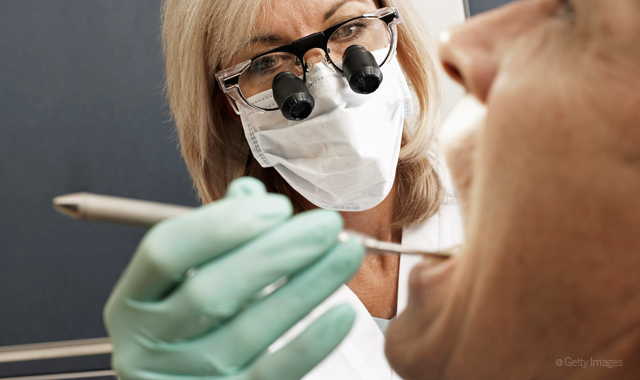Researchers discover new surgical procedure to treat peri-implantitis

Peri-implantitis is an irreversible inflammatory disease that is commonly caused by plaque and biofilm that accumulates on the exterior of a dental implant. It affects both the soft and hard tissues surrounding the implant, and without treatment, may result in excessive bone loss proximal to the implant and its eventual failure. Surgical therapies are most suitable for accessing and removing the biofilm, and thereby impeding the progression of the disease.
Researchers from Wonkwang University (Daejeon, Korea), Yonsei University (Seoul, Korea) and the Global Academy of Osseointegration (Seoul, Korea) published a study in the current issue of the Journal of Oral Implantology that examines a novel surgical procedure to combat peri-implantitis. In the article, the authors conducted two case studies using a newly developed cleaning and regenerative surgical process.
Trending research: Can root canal treatment be improved with prefabricated blood vessels?
In both cases, a round titanium brush was used to remove the debris, while maintaining the rough surface of the diseased implant. A regenerative approach incorporating bone graft materials was used to rebuild the bone surrounding the implant. The key to successful regeneration of the bone proximal to the implant is to successfully remove the plaque biofilm while maintaining the rough implant surface. The titanium brush used in this technique was extremely effective at removing the plaque biofilm that was causing the disease, while also preserving the rough surface of the implant threads. This made the regenerative process more successful and predictable.
The researchers note that, “The results obtained in the present two cases emphasize the importance of mechanical decontamination by eliminating the contaminated surface and creating a new rough surface for a regenerative approach in the treatment of severe peri-implantitis. This technique has the advantages of effective cleaning of the contaminated implant surface and producing positive clinical and radiological results during the two-year follow-up period. However, further studies are necessary to verify the reliability and validity of this technique.”
Trending article: Study finds link between periodontitis and infertility in young women
After a two-year follow-up period, the researchers found that the bone level was preserved following the use of this technique. In addition, another advantage was shown to be a reduction in chair time benefiting both the implant surgeon with a higher success rate and the patient with less muscle fatigue and joint pain that is associated with the prolonged opening of the mouth. Overall, the researchers are confident in the outcome of this new technique and recommend future research to track the long-term success of the procedure.
The full study, "Surgical Treatment of Severe Peri-Implantitis Using a Round Titanium Brush for Implant Surface Decontamination: A Case Report With Clinical Reentry," was published in the Journal of Oral Implantology.
Floss & Flip Flops Episode 22: National Dental Hygiene Month
October 1st 2023Join the Sanders Sisters and Dr Anna Kay Thompson as they learn about the burning questions the medical community is not asking about oral health. Learn about all of the ways they are celebrating the good work of dental hygienists in their quest for whole-body health.
Maximizing Value: The Hidden Benefits of Preventing Hospital-Acquired Pneumonia Through Oral Hygiene
September 10th 2024Originally posted on Infection Control Today. Hospital-acquired pneumonia (HAP) is a significant infection prevention concern, leading to high patient mortality, increased health care costs, and ICU usage. Oral hygiene is an effective preventive measure.